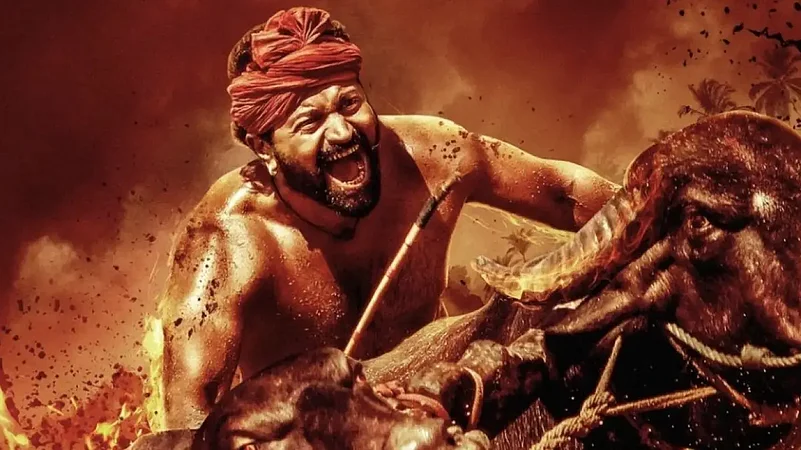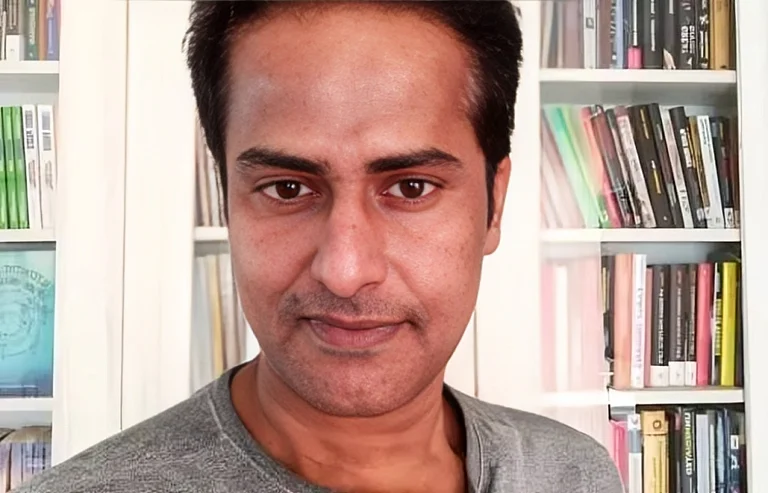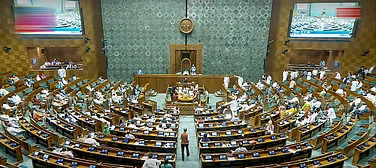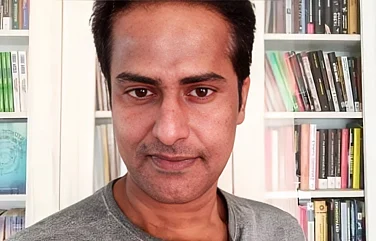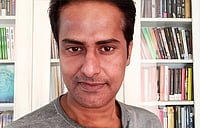A cultural practice of coastal Karnataka is at the centre of a raging debate in the state with the opposing camps debating its link to Hinduism.
Following the release of hit film Kantara, it is being debated if 'Bhootharadhane' ritual is part of Hinduism. While supporters of the argument say it's integral to Hinduism, critics say it's a pre-Hinduism ritual being appropriated now as part of the religion. They say it's part of 'moolnivasi-adivasi' culture and not Hinduism.
The debate has taken film personalities, cultural figures, and academics into its folds.
Here we explain what's 'Bhootharadhane', what's the debate around it, what are various people saying, and why the debate is so sharp.
What's 'Bhootharadhane' ritual?
'Bhootharadhane' is a ritual of spirit worship practised by people of coastal Karnataka. It's also alternatively spelt as 'Bhootha Aradhane'.
It's a practice from the Tulu-speaking region of coastal Karnataka's Dakshina Kannada and Udupi districts. It's commonly called as 'Tulu Nadu'.
Karnataka Tourism website notes: "Bhootaradhana or deity worship is very popular in Tulunadu. A ritual called nema or kola is performed for ghosts or Gods. Conducting kola/nema has its own race and rules. The face is painted, wrapped in a Siri made of coconut feathers, and danced invoking the deity. The Divine Dancer gives justice to human beings and resolves disputes through the Word of God. Deity worship is the fundamental religious belief of the Tulu race."
Bhootha Kola’ is a ritual performance where local spirits or deities are worshipped. It is believed that the person performing the ritual turns himself in as God at the moment and listens to people’s grievances and provides answers.
Several ‘Bhoothas’ are being worshipped in the Tulu-speaking belt of Dakshina Kannada and Udupi districts. The rituals are mostly confined to small local communities and rural areas where the ‘Daivas’ are believed to protect the villagers from all evils.
North Kerala’s ‘Theyyam’ performed in local temples and houses has strong resemblance to the 'Bhootha Kola.'
The Karnataka Tourism website adds that idols representing 'bhoothas' are taken out in a procession to the beating of drums and bursting of firecrackers and as the procession ends, the idols are placed on a pedestal.
"Frantically pacing up and down, he enters into a possessed state and acts as an oracle," notes the website.
What's the debate over 'Bhootharadhane' ritual?
The discussion was opened up with the success of Rishab Shetty's Kannada film 'Kantara', whose story is based on the traditions and beliefs, including worship of 'Bhootha Kola', in the Dakshina Kannada region.
The controversy was kicked off by Kannada actor-activist Chetan Kumar who questioned Shetty’s claim in an interview that the 'Bhootha Kola' ritual is part of Hindu culture.
During the interview, Shetty was asked whether Panjurli, a spirit in the form of a wild boar, was depicted in the movie as a Hindu deity. Shetty replied that those Gods are 'all part of our tradition' and of Hindu culture and rituals.
He said, "Because I am a Hindu, I have belief and respect for my religion. But I will not say others are wrong. What we have said [in the movie] is through the element that is present in Hindu dharma."
Contesting this, Kumar told a press conference that it is important how we use the word 'Hindu'.
He said, "It is wrong to say that 'Bhootha Kola' is part of the Hindu religion. Adivasis practised the ritual and there is no 'Brahminism' in Bhoota Kola."
Cautioning against bracketing ancient 'moolvasi' culture with Hinduism, Kumar said it is the culture of the adivasis.
"Do not put adivasi culture in the column of Hindu religion," said Kumar.
Adivasi and moolvasi are terms meaning the original and native inhabitants of the place. These terms distinguish "natives" against the "outsiders".
The case against links with Hinduism
Activist and actor Kumar said Bhootha Kola is a non-Vedic ritual and was not part of Hindu tradition which was later 'hijacked' by Aryans.
Aryans are believed to be a group of Indo-European people who historically arrived in Northern India via present-day Iran in ancient times. As per the Aryan invasion or migration theory, it is believed that Aryan people's settling in the ancient Northern India led to the foundation of Hinduism.
The Britannica Encyclopaedia notes, "The theory of an 'Aryan race' appeared in the mid-19th century and remained prevalent until the mid-20th century. According to the hypothesis, those probably light-skinned Aryans were the group who invaded and conquered ancient India from the north and whose literature, religion, and modes of social organisation subsequently shaped the course of Indian culture, particularly the Vedic religion that informed and was eventually superseded by Hinduism."
In a tweet, Kumar said, "Glad our Kannada film 'Kantara' is making national waves. Director Rishab Shetty claims Bhoota Kola is 'Hindu culture'. False. Our Pambada/Nalike/Parawa's Bahujan traditions pre-date Vedic-Brahminical Hinduism. We ask that Moolnivasi cultures be shown with truth on and off screen."
Karnataka's land has its own culture, tradition and history even before the Hindu religion began and Bhootha Kola and other practices are part of the adivasi culture which has been existing for several thousand years, said Kumar later.
Shetty, who sought to distance himself from the controversy, said he has no comment on the issue.
He said, "When I was making this movie, those people who practised this culture were with me and I have been very cautious. I come from the same part, still I do not want to comment about it as only people who perform it have the right to speak."
Criticism of Kumar's views on Bhootha Kola
Noting that 'Bhootha Kola' represents Hindu culture and tradition, Sri Rama Sene chief Pramod Muthalik in a statement said Kumar, who is an atheist, does not know the culture of the land.
Identifying 'Panjurli', a spirit worshiped in Bhootha Kola, with the Hindu God Vishnu has led to the controversy, with some pointing out the 'appropriation' of adivasi culture in films that depict Hinduism.
Reacting to the row, Dharmasthala dharmadhikari (hereditary administrator) and Rajya Sabha MP Veerendra Heggade said several such practices have evolved over the years and people have strong belief in them.
The people in Dakshina Kannada and Udupi districts believe in Daviaradhane and Bhootharadhane and there is no need to link it with dharma, said Heggade to media after watching the movie in Mangaluru recently.
Karnataka Tulu Sahitya Academy president Dayanand G Kathalsar affirmed that Bhootharadhane and worship of Bhoothas are part and parcel of Hindu religion. He said attempts are being made to separate those practising the worship from the mainstream of Hindu religion.
Kathalsar, who is also former president of Pampadara Yane Daivaradkara Seva Samaja, said there are 16 different classes who are involved in Daivaradhane in the coastal region. All the people from different classes are involved in the process, he said, adding it is unfair to try to distance it from Hinduism.
He said all Tuluvas believed in Daivradhane, including the scheduled castes who belong to the Hindu religion.
Police complaints against Kumar
The right-wing outfits are up in arms against actor-activist Kumar for his comments on Bhootha Kola.
Recently, an FIR was registered in Bengaluru against Kumar for his comments on Bhootha Kola, based on a complaint from a Bajrang Dal activist.
The Hindu Jagarana Vedike (HJV), which has also taken up the issue, also lodged a complaint at Karkala Police Station in Udupi stating that Kumar's statement has hurt the sentiments of Hindus. The Vedike has urged the police to take suitable action against the actor.
(With PTI inputs)






